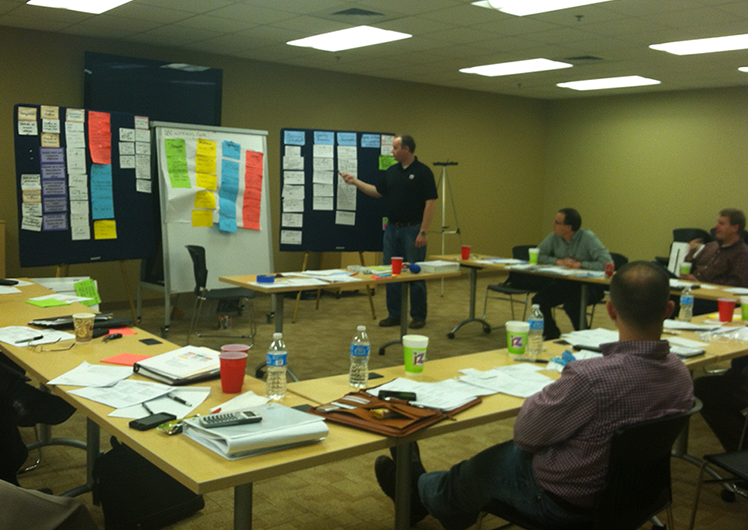Mighty Success & Failure
Geese are hard wired to align their flight pattern to a flock leader. When a lead goose honks the signal to fly down to feed in a new field, all geese follow. Let’s say there is a set of geese decoys positioned in a field with hunters hiding close by. This natural looking set up catches the attention of the head goose. She decides to fly down. With momentum built on a collective sway of wings in pursuit of a morning meal, the flock follows the leader. Confident that their leader’s strategy is correct again, the flock descends into potential disaster. A bad day for the geese – a good day for hunters.
Jim Collins says in his new book, How the Mighty Fall, that the future of a successful organization can be predicted by two distinctive conversations in a leadership team. First there is verbiage that indicates a strong chance for future success. It seeks deep understanding and insight, and sounds like this: “We’re successful because we understand why we do specific things and under what conditions they would no longer work.” On the other hand, when you often hear the rhetoric, “We’re successful because we do these specific things,” Collins warns to watch out. His research shows that when a leadership team holds this mindset, it will experience a swift decline. The organization will likely follow.
The problem is arrogance fails to recognize the role that luck and chance may have played in success. This attitude of unquestioned self importance negates the desire for objective examination and search for the hard truth. If a team doesn’t acknowledge the fallacy of this first stage of decline and undo it, then four phases will naturally follow. These phases are: undisciplined pursuit of more, followed by denial of risk and peril, then grasping for salvation and finally death. A bad time for the organization- a good time for competitors.
“Before a fall a man’s heart is proud, but humility comes before honor” writes the author of The Book of Proverbs in the Bible. Collins validates Solomon’s ancient wisdom that destruction is almost always self inflicted. He supports this shared premise with empirical data and memorable stories. Fortunately, each of these books offers practical ideas and proven actions which will reverse this decline. Both books are worth reading this summer and maybe once again when the flocks fly south this fall.
Working Journal Entry: What language of success do you experience in your team meetings, career conversations or at home chats? What good things could happen if, you discussed the concepts in this article with the people who are vital in your leadership and life?
PS – If you would like to see Collin’s full spectrum of the rhetoric of teams on the way up and on the way down, email me your request and I will send you a one page summary.



